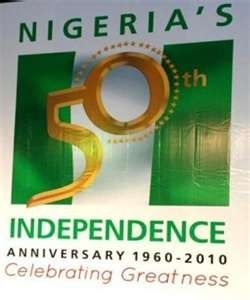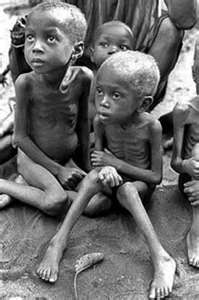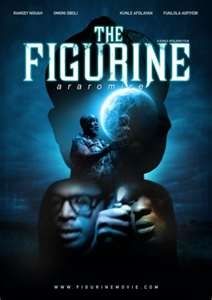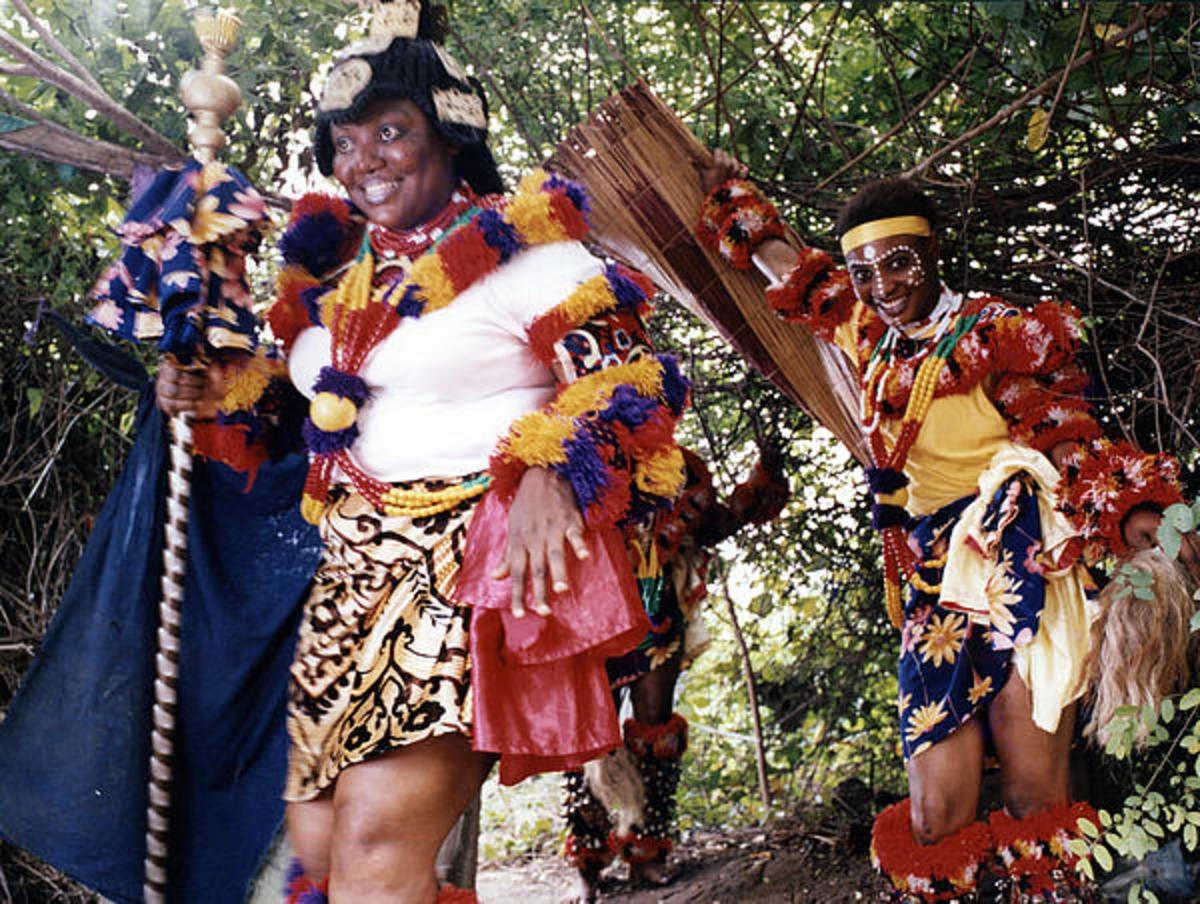Naij: A Film History of Nigeria

Naij: A Documentary History of Nigeria
In the wake of reports of a terrible outrage - the abduction of more than 200 schoolgirls in northern Nigeria by Boko Haram- itis vital to have an understanding of the historical conflict.
Naij: A Film History of Nigeria was screened as part of a programme of Nigerian films at BFI Southbank in London.
The history of Nigeria is very complex and multi-faceted. This film goes some way to examining the history of Nigeria from the colonial period to the present day.
This lens also explores New Nigeria Cinema and contains some brilliant Fela Kuti videos. Enjoy!
Terrorism in Nigeria
Any acts of terrorism within Nigeria have to be seen within the overall context of the complicated history of this country.
- Documentary - Sweet Crude
In this blog, I talked about this documentary which shows graphically how the situation in Nigria has been distorted by international media. - As Nyanya Is Bombed Again!
In the wake of the horrendous kidnap of 200 schoolgirls in northern Nigeria, a report on bombing in the region.
Naij: A Film History of Nigeria
Documentary film charting Nigeria's first 40 years of Independence
This documentary charts the history of Nigeria post-Independence. It clarifies the series of conflicts, coups and assassinations which ensued.
This lens includes videos of Fela Kuta, links about Rwanda and Liberia, and much more.
Why Do We Never Talk about This?
The Effects of Colonisation in Africa
Why do we not talk about the consequences of European colonisation on African countries?
People from Africa often talk about the corruption in their countries, the corrupt governments. But they rarely mention the fact that it was European intervention that allowed corrupt governments to flourish.
People from the Diaspora talk about slavery and the effects of Post-Traumatic Slave Syndrome. But we are often unaware of what happened in Africa.
How many people know that the first German death camp was built in Namibia in 1905?
Or that the British in Kenya slaughtered thousands of people, stole their land, and relegated the remaining Kenyans to menial jobs? Or that Teddy Roosevelt said that the same people who did well in the old West would do well in Kenya?
President Obama's grandfather was one of the people imprisoned and tortured by the British - even though he had loyally served in the British Army during World War II - because he dared to express support for the rebels during the so-called emergency.
How many people know that people in Nigeria were enslaved and forced to work for the British armed forces during the Second World War?
For more information on the above, see: London Black History Walks.
Naij
Naij: A Film History of Nigeria
The documentary Naij: A Film History of Nigeria charts the history of Nigeria over the first 40 years of Independence - 1960-2000.
Naij: A Film History of Nigeria describes what happened over the course of successive Nigerian governments.
As a non-Nigerian, my impression of Nigeria and, indeed, many African and Latin American nations, was of governments being overthrown time and again in a series of coups. This film did nothing to dispel that impression.
The History of Nigeria on Amazon - Books on the History of Nigeria
A Troubled History
The troubled history of Nigeria post-Independence
However, Naij: A Film History of Nigeria did give me greater clarity about this troubled history. The first republic, a very corrupt regime, was overthrown by the Army in order to eliminate corruption. However, the military government became just as corrupt and was replaced by the second republic, amidst much jubilation and the high hopes and expectations of the Nigerian people.
This same story was repeated time and again.
At one point, the government pursued a "Northerners First" policy. See the video below.
Those who opposed a given regime took matters into their own hands, imprisoning or assassinating those in power.
Northerners First - Video about the "Northerners First" policy in Nigeria
Clip from "Naij: A Film History of Nigeria"
Nigeria under Colonisation
The legacy of European colonisation and its effect on African countries
Many times, people who speak of corruption in Africa fail to mention the historical context for this problem.
Nigeria is a country which the British cobbled together from three main areas, which were comprised of more than 150 different groups. With the attendant differences of culture, religion and styles of government, tensions were inevitable.
As with many African countries, the colonisers destroyed the existing political and economic structures, replacing them with unstable ones. This led to bloody armed conflict.
Much of the conflict and strife experienced in Nigeria post-independence has its roots in this colonial interference. The film does not emphasise this enough, but it does make comparisons to the conflict in Rwanda. Similar comparisons could be made with Sierra Leone and Liberia, to name but two.
To read more about Rwanda, see: Hotel Rwanda.
For more about Liberia, see: African Women's Creativity. Please note, this lens depicts scenes of violence, so you need to be signed in to Squidoo to read it.

The Biafran War
As described in Naij: A Film History of Nigeria, the three regions of Northern, Eastern and Western Nigeria threatened to split apart to form separate, independent states and, in 1977, the predominantly Ibo area of Eastern Nigeria seceded to form Biafra.
I am old enough to remember the Biafran war with its photographs of starving children.
What I did not realize at the time was that oil had recently been discovered in Eastern Nigeria, The rest of Nigeria and, perhaps more significantly, the Western powers were not willing to allow Biafra to secede as they feared losing this source of revenue,
The ensuing war was bloody, as civil wars tend to be, The Western powers, including France and Belgium, sent arms and mercenaries with one handm and aid with the other.
Again, comparisons can be made with Rwanda. Of course, as Rwanda had no oil reserves, it was not as of much interest to the Western powers, which abandoned the country at the time of the genocide.
Postwar Prosperity
Nigerian prosperity during the oil boom
As described in Naij: A Film History of Nigeria, once the Biafran secession had been defeated, a new, united Nigeria looked foerward to a bright future and enjoyed prosperity during the oil boom,
The boom was folled by bust when oil prices plummeted in the 1980s.
The film charts a series of governments as republics were replaced by ever more brutal and oppressive military regimes. It became the norm for people to be imprisoned without trial during the "war on indiscipline" imposed by one such regime.
Unstable Economy
Comparison with the West
The economic crisis resulted from over-borrowing, which vastly depleted Nigeria's financial reserves. When the price of oil plummeted, the government was unable to repay the funds it had borrowed.
What followed was recession and widespread unemployment. This echoes what is happening today in the U.S. and European economies.
Nigerian students studying at foreign universities suddenly learned that their grants had not been paid, nor were they likely to be paid. With no money to return home, many found themselves stranded.
Once again, the Army took over. Could this happen here?
Fela Kuti's Contribution
The Contribution of Fela Kuti
Singer, songwriter and performer Fela Kuti became very popular as the voice of the people, outspoken in his criticism of successive regimes.
The film includes a clip of Fela being interviewed in which he shows to the camera the scars from the beating he received on his arrest. But he still continued to criticise the government.
Fela Kuti: Army Arrangement Part 2 - Fela Kuti music video
Fela Kuti "Water No Get Enemy" - Video: Fela Kuti "Water No Get Enemy"
This video features a recording of Fela accompanied by stills.
Fela Kuti: Teacher Don't Teach Me No Nonsense - Video of live performance by Fela Kuti
Fela Kuti in Performance - Video of Fela Kuti in performance

New Nigeria Cinema
A new wave of filmmakers in Nigeria
The Nollywood movement has produced many thousands of films, and currently produces about 200 per month. These films are characterised by being made very quickly and on low budgets. Nollywood is now the second-largest film industry in the world, after Bollywood. But frequently, quality is sacrificed in order to achieve quick results.
Nollywood is a hugely successful film industry at a time when many African economies are still struggling.
In the wake of this financial success, a new wave of Nigerian film directors and producers has arisen. They aim to produce high-quality films for international distribution. See the videos about Mirror Boy and The Figurine, below.
Brazil is seeking to draw on Nigerian filmmaking expertise, with the Brazilian government planning to sign an agreement with Nigeria.
Meanwhile, other African countries are following suit. In Ghana, Silverbird is buying cinemas and screening African-made films.
In Rwanda, the Rwandan Film Festival showcases local talent with films made in local languages. The festival also screens films on human rights abuse, genocide, women and children, so is using film to help to transform a society trying to emerge from the shadow of the genocide. See also: Africa United.
New Film: Mirror Boy - New Nigeria Cinema Sparks Nollywood Renaissance
Report about new Nigerian film Mirror Boy

The Figurine (Araromire)
New Nigeria Cinema
The Figurine is another example of New Nigeria Cinema.
Directed by Kunle Afolayan, it tells the story of a figurine of a goddess, Araromire. The figurine comes into a family, bringing with it seven years of good luck and prosperity, followed by seven years of misfortune.
The Figurine combines techniques of horror movies and thrillers with traditional African storytelling and myth. The script invents a goddess, Araromire, who, like many traditional deities, is fickle.
The film shows how traditional beliefs continue to influence people's lives in modern Africa and, in the end, offers no answers - just a challenge to the viewer to decide for him/herself what to believe - or not.
To watch the trailer, see below.
The Figurine trailer - Trailer for The Figurine (Araromire)
Nigerian Film on Amazon
Resources
- Her Husband Burned Her First Novel
Blog about, and interview with, the Nigerian novelist Buchi Emecheta - Nigerian Literature
Blog about a radio show on modern Nigerian literature
Goodluck Jonathan Wins Nigerian Election
Goodluck Jonathan, a Christian from the Niger Delta, has been declared the winner of the Nigerian Presidential election. With 57% of the vote, Jonathan got more than twice the votes of his nearest rival.
Very high numbers of votes for Jonathan in the South led to riots in Northern Nigeria.
The Niger Delta has been the scene of intense fighting for many years, as locals demand the international oil companies based there give them proper compensation. Check out the link to "Sweet Crude" in "Terrorisim in Nigeria" above.











